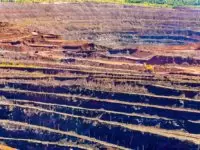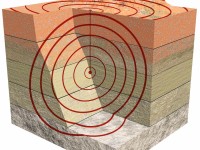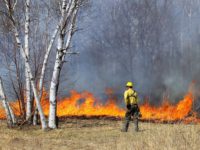
A Land Management Specialist has a range of skills in the upkeep of natural resources.
What Does a Land Management Specialist Do?
A land management specialist will often be responsible for management and upkeep of a number of preserves or conservation areas. Part of their role will be that of land steward or forester and they will be required to maintain trails, paths and clearings using common tools of the trade (such as power saws, chainsaws, lawnmowers and chopping tools such as pruners and hand saws). They will also in some cases be responsible for the upkeep of these tools ensuring proper maintenance in use.
Their practical knowledge is invaluable in designing structures along the trail of a natural habitat such as benches, bridges, signage and elevated boardwalks (such as where areas of wetland require protection from human traffic and elevating the path is the best way to achieve this).
They are at the front line of assisting restoration activities including removing invasive species. However, they will also be involved in designing and implementing logistical plans associated with this type of role including setting up monitoring equipment acquiring data, setting up projects with contractors, volunteers and other employees. Their role may include some planning.
They will have invaluable knowledge of property boundaries and conduct efforts to remove, repair and counteract vandalism and natural damage. Their role is both public facing and behind the scenes. This is often the type of person to engage with the public, offering information, listening to concerns and acting on information received (wildlife crime, vandalism etc). They differ from environmental resource managers in that they work on the ground and with land users and land use planners in that they see land as more than a resource.
Where Does a Land Management Specialist Work?
This is a type of conservation scientists, blending ecological understanding with public use with practical skills. According to 2015 data, the largest employer of this type of role was the Federal government, employing 34% or just over 1/3 of all people with this type of job in the USA. They worked for Federal government bodies such as the NPA and EPA and for areas of protected land that require active management. The second largest employer was state government, employing 24% or just under � of all employees. Their roles are similar to those in the Federal government but they will work for state parks and other state conservation areas. Local government employed 17%. The government, in any form, employed the largest number of people working in this type of role.
Social advocacy (typically conservation charities) employed the fourth largest number at 10%. This involves privately held land (for example, for summer schools that own land privately) or simply for conservation.
What Is the Average Land Management Specialist Salary?
Land management specialists, who fall under the broader BLS category of conservation scientists and foresters, earned a median salary of $64,010 as of May 2020.*
Land Management Jobs & Job Description
A land management specialist role combines several of the hands on responsibilities of a forester and conservationist with the public-facing duties of a park ranger or land use planner. An entry level land management specialist may be responsible for the following job duties:
- Monitor and maintain trails, paths and clearings using the proper tools, such as chainsaws, lawn mowers, hand saws, etc.
- Clean, maintain and repair forestry tools as necessary
- Patrol park or forest areas to protect resources and prevent damage
- Thin and space trees and control weeds and undergrowth, using manual tools and chemicals
- Plan for and install structures in park or open space, for instance benches, signage and bridges
- Record data collected in the course of monitoring activities
- Monitor for and coordinate the removal of invasive species that may impact the natural environment
- Remove, repair and counteract vandalism and natural damage
- Provide visitor services, such as explaining regulations, answering visitor requests and providing information
A more senior land management specialist may take on leadership and supervisory responsibilities in addition to those listed above. Additional tasks may include:
- Train and lead forest and conservation workers in activities such as tree planting, invasive species removal and maintaining recreational facilities
- Provide information about, and enforce regulations such as those concerning environmental protection, resource utilization and accident prevention
- Supervise workers performing forestry tasks such as thinning trees
- Provide project information to local, state and federal agencies and the public through brochures, bulletin boards, news releases, telephone calls and other written and verbal correspondence
- Assist in developing plans for facility improvements
What Is the Job Demand for Land Management Specialists?
Job demand for conservation scientists and foresters is expected to grow some 7% between 2020 and 2030. Demand for American timber is expected to grow and conservation work is likely to be volatile for the foreseeable future.*
What Are the Education Requirements to Become a Land Management Specialist?
Conservation work is a growing specialism. Although students will not necessary need a degree to become a land management specialist, the increasing practical nature of all environmental studies programs means that this is desirable. High school students should focus on geography and math, as well as English language and communication. Biology would be useful for entry into most degree programs.
Any degree that teaches practical skills will be useful. Forestry is a good choice as is environmental studies, fish & wildlife management and environmental biology. Students will need to take minors or electives that provide communication skills. GIS is also a growing requirement within this type of job and you may be expected to have this skill from the entry-level role. Where the student chooses a more academic degree, they should seek practical minors and electives such as forestry. Your responsibility for equipment and machinery means that qualifications in mechanics may also be useful. Therefore, environmental planning and design may also be a good entry point.
The practical nature of the job means that postgraduate study is usually not required. Masters may be suitable where there may be a requirement for primary research, but it will not be vital. Doctorates are unnecessary for this type of role.
Land Management - Related Degrees
What Kind Of Societies and Professional Organizations Do Land Management Specialists Have?
The following organizations exist for this type of role, including information and education
- Society for Range Management: Representing scientists, students, teachers, land managers and much more, this brings together people across the country and the spectrum for a common goal
- Environmental Protection Agency: The Federal government organization responsible for protecting our wild spaces, public and ecological health for the good of all Americans
- US Forest Service: They are responsible for conserving, planning and managing 154 forests across the USA
*2020 US Bureau of Labor Statistics salary figures and job growth projections for conservation scientists and foresters reflect national data not school-specific information. Conditions in your area may vary. Data accessed September 2021.





